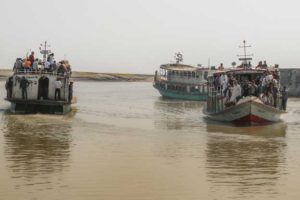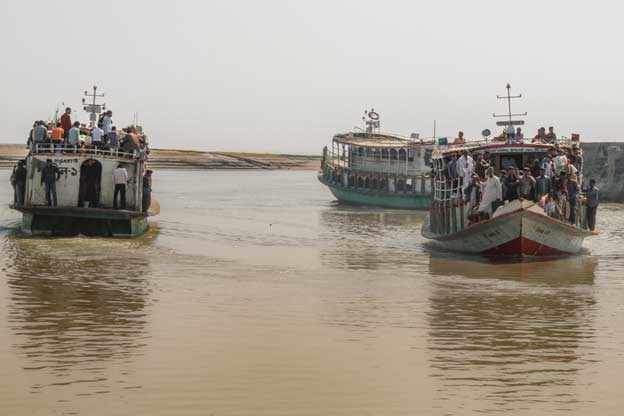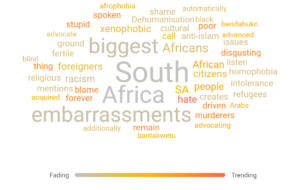
Image of the British Museum in London by Hulki Okan Tabak from Pixabay
This is a summary of the trending, highest impact, and most active themes and their narratives related to social cohesion and division in South African public-domain social media conversations from 5 to 7 June 2020.
Standing up together
As the Black Lives Matter movement and worldwide protests continue to dominate social media conversations, more business leaders are demonstrating their support publicly.
On Friday Reddit co-founder @alexisohanian announced his resignation in a Twitter thread and appealed for his replacement to be a black candidate: “I co-founded @reddit 15 years ago to help people find community and a sense of belonging. It is long overdue to do the right thing. I’m doing this for me, for my family, and for my country.” The tweet has received over 25,100 retweets and 167,600 likes.
Others called on black executives to transform their organisations. South African businessman @G_XCON tweeted, “If you are the only Black person on any Board of Companies for a period of 12 months, just know that you are more of a problem than those racist that you serving with on that satanic Board.” The tweet gained traction with 186 retweets and 557 likes.
Following international solidarity over the killing of George Floyd, many have begun sharing other injustices plaguing black communities around the world. Twitter user @kidistbogale retweeted a post by @tayjordz that depicts gruesome images of black people as slaves in modern day Libya: “black lives matter applies ALL AROUND THE WORLD btw”. The tweet generated over 70,300 retweets and 102,700 likes. And
The @britishmuseum showed their support for the BLM movement – their 4-part thread included a link to a statement: “‘The British Museum stands in solidarity with the Black Community throughout the world. Black Lives Matter – Director Hartwig Fischer.” Read Hartwig’s thoughts and response here: http://ow.ly/st5S30qMVSO”. The tweet received over 2,800 retweets and 640 likes.
Incidents of police brutality continue to circulate on social media, fuelling protests and calls for reform in the US policing system. On Sunday film director and writer @ava retweeted a post by @_SJPeace showing a video of a white male police officer lying on top of a black woman, choking her: “Everyday. Everywhere. For. Black. People. This. Is. A. Very. Real. Possibility. White. People. Get. To. Ask. And. Argue. And. Assert. We. Must. Submit. And. Comply. Or. Else.” The tweet got 43,400 retweets and 83,700 likes.
Actor and musician @jaden echoed these sentiments, tweeting “In The African American Community Police brutality Has Reached A Incomprehensible Level And Governmental Changes MUST Be Made.#BLM” The tweet has 1,500 retweets and 8,800 likes.
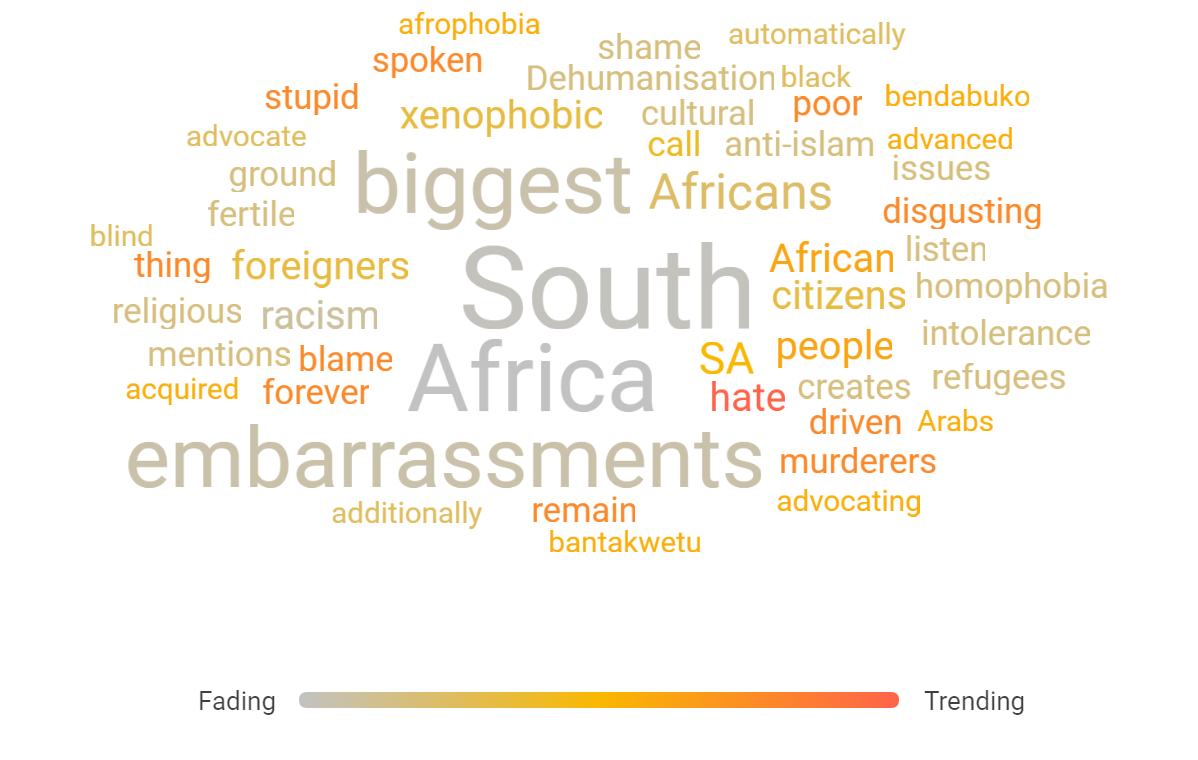
Pointing fingers
Helen Zille expressed her disapproval of schools remaining closed: “This attempt to keep schools closed is highly irresponsible, and will do more damage to children’s lives than Covid. The only people who should stay home are children with dread diseases, or staff with co-morbidities.” Zille’s tweet received 1,000 likes and 326 retweets, with most comments disagreeing with her opinion, especially her belief that herd immunity will stop the spread of Covid-19.
The tweet was a response to an EWN.co.za article about previous DA leader Mmusi Maimane’s fight against the Concourt ruling to reopen schools. Maimane has advocated for schools to stay closed until proper safety measures have been implemented. Maimane responded to Zille’s tweet in a light-hearted manner, saying she chose to “throw shade” at him on his birthday.
On 3 June @PhumlaniMMajozi tweeted about organisations he claimed were destroying South Africa. Although the tweet was posted earlier in the week, it gained traction during the weekend, with over 1,700 likes, 518 retweets and 122 comments. Phumlani Majozi, a South African political researcher and commentator, named four organisations he believed were responsible for the destruction of South Africa over the past 15 years: the ANC, the SACP, Cosatu and other unions and the EFF. Some Twitter users agreed with him, while others asked him why he doesn’t start his own party and why he excluded organisations such as the DA, SANDF and BLF. Since posting the initial tweet, Phumlani has not commented or engaged with the tweet or the comments received.
Xenophobia bursts out
The hashtag #PutSouthAfricansFirst appeared in a tweet posted by @landback at 15:09 on Sunday 07 June. Accompanying the tweet was an image of a petition board reading: “We want our country back” together with an image of President Cyril Ramaphosa. The tweet states: “South Africans are busy mobilising to protest against your government’s open borders and high immigration policies.” The post has been retweeted 64 times.
At the weekend a petition was created on Change.org by Nandiswa Gschwari called, “Save South Africa from Foreigners and their Crimes.” The petition asked for 500 signatures and had received 459 signatures by Monday. The petition claims: “Farmers are being murdered by Zimbabweans, Mozambique’s and Malawians. The youth is dying of drugs, human trafficking by Nigerians. Our country has become a paradise for all sorts of criminal activities because of its lawlessness. Please sign and help us save South Africa and re build this beautiful country.”
British political commentator Katie Hopkins, known for her rightwing stance, aired her views in a video that was tweeted on 5 June and viewed more than 100,000 times. The tweet that accompanies the video says: “South Africa is a glimpse into our future. Under a new development, White South Africans will be given refuge & farming opportunity in Eastern Europe. Could Eastern Europe be the place white Christians call home?” Some white South Africans asked why they would need to go to eastern Europe, when South Africa was their country too?
Resorting to humour
South Africans sought some comic relief on Twitter this weekend, with many humorous tweets becoming popular.
Posing as “specialist correspondent Bob O’Connor”, Tyson Ngobeni explained to imaginary foreign viewers, the concept, function and significance of the “room divider”, a piece of furniture found in many South African households. The tweet received almost 9,000 likes and had been retweeted over 4,000 times.
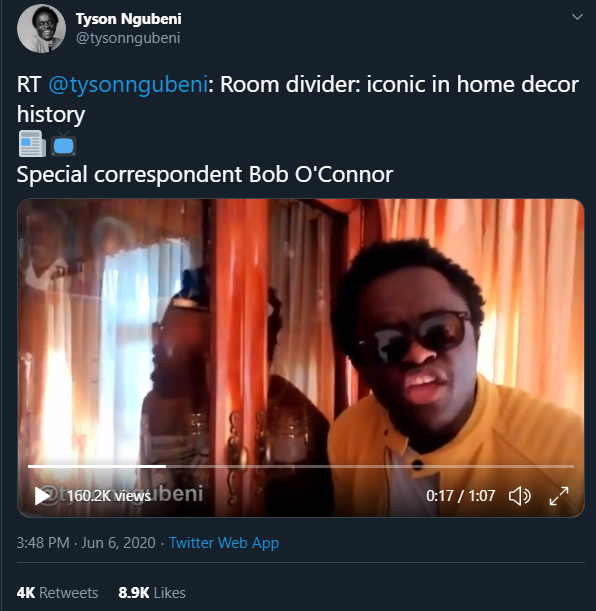
Uyajola, the reality TV show hosted by Jub Jub that exposes South Africans who cheat on their partners, received over 47,000 mentions, mostly on Sunday after the show aired. Man’s NOT Barry Roux (@AdvoBarryRoux) tweeted, “Jub Jub made the pots do the things that cannot make the pots to be done” – the tweet received over 2,000 likes. There was largely positive sentiment towards the show, while some expressed dismay at the content. A tweet by @xplosivsa, which received only seven likes, noted: “We live in a sad society where the highlight of the week is a show about people cheating on each other.”
South Africans celebrated our unique use of the English language. @MuhammedAsmal4 tweeted: “South Africa is the only place where “don’t lie” means “tell me more.” The tweet received 1,800 retweets and almost 7,000 likes. Others responded with similar “South Africanisms”.
Another humorous tweet that received much attention was posted by @dannyeurl: “the only ex i miss is ex-tra money.” It received almost 300,000 likes internationally, and over 1,000 mentions locally. DM
The Centre for Analytics and Behavioural Change (CABC) is a non-profit organisation incubated at the Graduate School of Business at the University of Cape Town.The CABC stimulates positive social change through engagement, dialogue and advocacy. www.cabc.org.za

Comments – share your knowledge and experience
Please note you must be a Maverick Insider to comment. Sign up here or if you are already an Insider.

